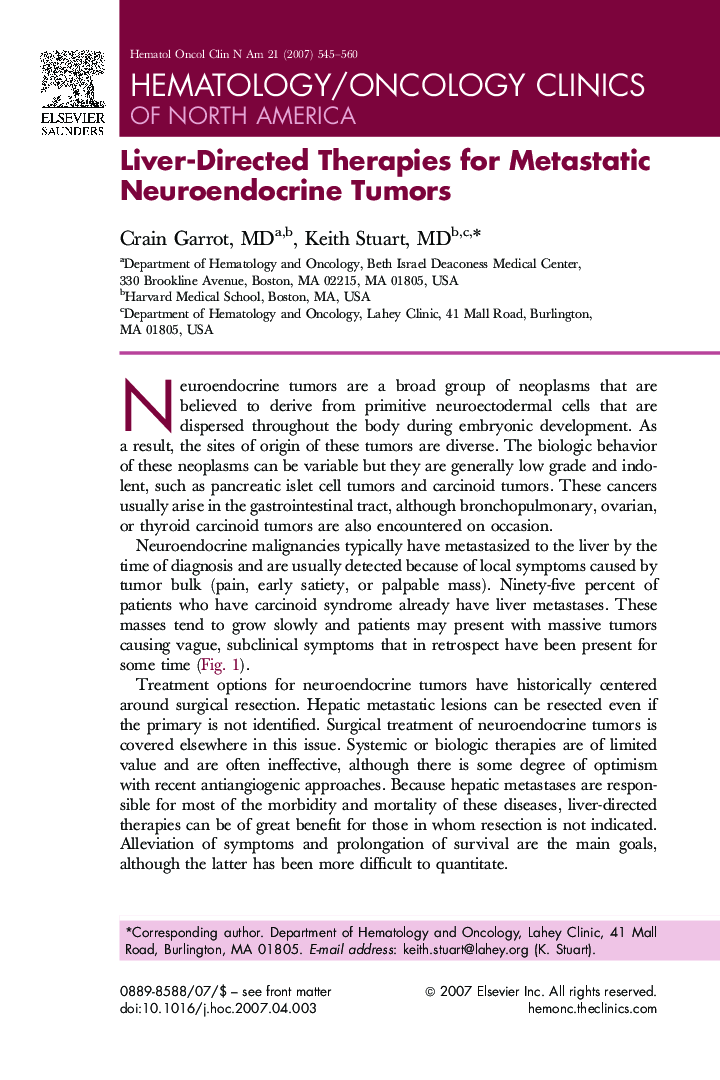| Article ID | Journal | Published Year | Pages | File Type |
|---|---|---|---|---|
| 3331813 | Hematology/Oncology Clinics of North America | 2007 | 16 Pages |
Neuroendocrine tumors, despite being indolent, frequently cause significant morbidity and mortality from hepatic metastatic lesions. It is possible to directly target these liver lesions with embolization/chemoembolization, radiofrequency ablation, or other therapies. The observational studies that exist seem to indicate a prolongation of survival. Liver-directed therapies are also able to decrease symptoms in most patients. The value of these therapeutic interventions therefore lies mainly in their palliative capabilities. Coupled with aggressive use of octreotide, local ablative techniques may frequently control symptoms of hormone excess and tumor bulk. Because of the possible adverse effects of these interventions, however, careful patient selection is essential to minimize the morbidity and mortality of the procedures.
